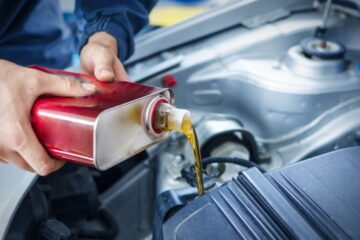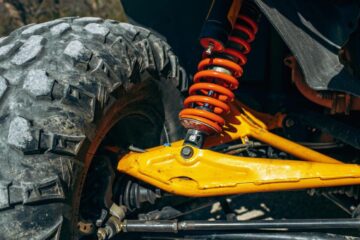Buying a car should be an exciting experience. New owners should come home feeling good about their purchase, but not all do. The unfortunate truth is that many vehicles have hidden defects that are invisible without a thorough inspection.
These issues lead to unexpected maintenance fees, safety concerns, and the sinking feeling of getting taken for a ride. The best way to protect yourself from these risks is through a pre-purchase inspection.
What is a Pre-Purchase Inspection?
A pre-purchase inspection of a used car is like a comprehensive health check for a vehicle. A professional mechanic or specialized car inspection service examines the vehicle for mechanical, electrical, or body damage.
This check uncovers problems the seller did not know about or chose not to disclose. It ensures the vehicle’s performance, safety, and longevity before the buyer spends thousands or tens of thousands of dollars on a faulty product.
A thorough pre-purchase inspection checks the engine, transmission, suspension, brakes, electrical systems, and history.
Common Problems a Pre-Purchase Inspection Can Detect
A pre-purchase inspection detects many problems that go unnoticed in the excitement of buying a car or during a test drive. Some of the most common issues include:
Transmission Issues
The transmission is one of the most complex parts of any vehicle, and replacing it is equally expensive. Signs of a failing transmission, like shifting delays, are hard to catch, even during a test drive.
Engine Troubles
Fixing an engine brings significant costs. Identifying problems like oil leaks, loose parts, and other signs of wear will save buyers thousands on future repairs.
Faulty Electrical Systems
Vehicles’ electrical systems include parts like the alternator, battery, and starter motor. These parts generate and send power to critical and non-critical systems like power windows or parking brakes.
Modern cars also include quality-of-life features like proximity sensors and cameras that drastically affect the driver’s performance. A pre-purchase inspection will discover potential failings in these systems that would endanger the vehicle and, more importantly, the driver.
Frame or Structural Damage
The inspecting mechanic checks for physical defects like dents, scratches, and weather damage. This process also involves reviewing the car report for the prior accident, maintenance, and service history. These records can hint at recurring issues.
Brake and Suspension Problems
Worn-out brake pads or damaged shock absorbers compromise a vehicle’s safety. These problems are somewhat noticeable during a test drive through grinding sounds or an inconsistent pedal sensation. However, a pre-purchase inspection will alert buyers to these issues before they affect the driving experience.
Key Benefits of a Pre-Purchase Inspection
Some buyers are reluctant to perform a pre-purchase inspection, viewing it as unnecessary or annoying. While the apparent motivation for this practice is to ensure you’re buying an acceptable product, there are other hidden benefits.
- Negotiating Power: An inspection may uncover problems that aren’t a dealbreaker for you. However, you can leverage these defects to negotiate a lower price based on the cost of repairs.
- Safety Assurance: Your car is responsible for the safety of your family and friends. Used cars are more likely to have faulty safety features such as brakes, airbags, and headlights. These issues make accidents or inclement driving conditions far more dangerous.
- Long-Term Savings: A pre-purchase inspection alerts you to existing and potential problems. This means the mechanic can estimate what costs the new owner will likely face. An inspection is a small investment that protects buyers from costly future maintenance.
When Should You Get a Pre-Purchase Inspection?
Buyers should perform a pre-purchase inspection only after seriously considering the purchase. This means that they have personally seen the vehicle and examined its condition.
You can only learn so much by staring at the paint job in someone’s driveway or going for a test drive. Learning more requires a pair of experienced and trained eyes. This is especially true when buying older models or modified cars, as there’s a higher likelihood of damaged or faulty components in these situations.
Many believe pre-purchase inspections are only necessary for more casual purchases. Used vehicles rarely come with a worthwhile warranty, and even vehicles sold at certified lots should be inspected before signing the paperwork.
How to Get a Pre-Purchase Inspection
Getting a pre-purchase inspection isn’t difficult. However, try to connect with a mechanic with whom you have a prior relationship. Barring that, avoid going with the seller’s personal mechanic to ensure an unbiased report on the car’s condition.
Finding a trustworthy mechanic is all about research. Online reviews are a good information source, but you should also speak with the inspector before choosing. Ask if they have the Automotive Service Excellence (ASE) Certification. This designation requires extensive proficiency and frequent renewals to ensure mechanics remain current.
Once you’ve found a reliable mechanic, inform the seller that you’re interested in the vehicle but want to perform an inspection before purchasing it. A reputable seller is unlikely to refuse an inspection, and you should consider it a red flag if they do.
Set a date with the seller and schedule an appointment with your mechanic. Some shops will send a team member to the seller’s location to perform the inspection.




